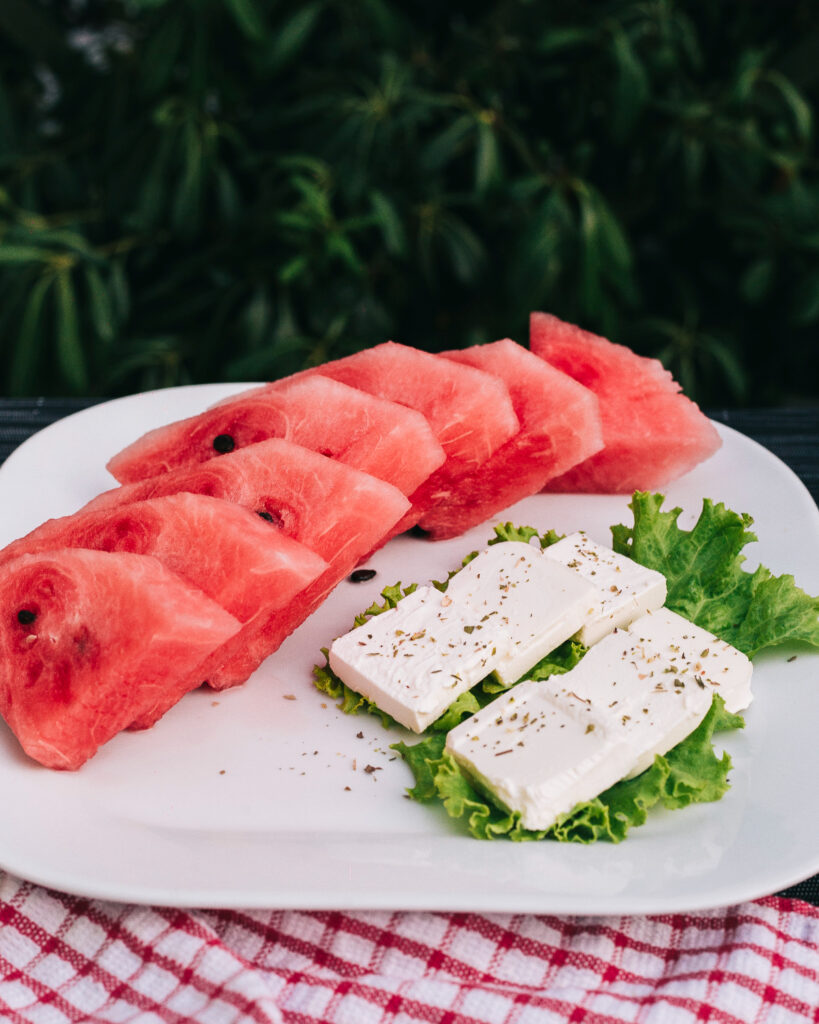
Fast Facts
Watermelon is 92% water, making it a hydrating fruit.It
contains vitamins A, C, and B6, as well as potassium and magnesium
Watermelon is rich in antioxidants like lycopene, which may help reduce the risk of chronic diseases
The seeds and rinds of watermelon also offer nutritional benefits, including magnesium, folate, and healthy fats.
Sweet and juicy watermelon is a quintessential symbol of summer. At first glance, it might seem like it’s just water and sugar, but watermelon is packed with nutrients and offers numerous health benefits.
“We think of watermelon as a fun, seasonal food for barbecues and the beach, but it’s also really good for you,” says registered dietitian Lara Whitson, RD, LD. “It’s low in calories, keeps you hydrated, and provides many other nutrients that can help you maintain good health.”
Nutritional Value of Watermelon
Despite lacking protein and iron, the nutritional benefits of watermelon should not be underestimated. It is fat-free, sodium-free, and cholesterol-free, earning the American Heart Association Heart-Check Certification. Even the seeds are nutritious, containing magnesium, iron, healthy fats, and zinc.
One cup of diced watermelon contains only 46 calories and:
- 0 g of fat
- 1 mg of sodium
- 9 g of sugar
- 10 mg of calcium
- 12 mg of vitamin C
- 15 mg of magnesium
- 139 g of water
(Source: USDA)
Additionally, it provides 170 milligrams of potassium, which supports nerve and muscle function and helps maintain fluid balance. Watermelon also contains vitamins A and C, crucial for overall health.
Disease-Fighting Properties

Watermelon is rich in antioxidants like lycopene and cucurbitacin E, which may help protect against diseases such as cancer and diabetes. Lycopene, which gives watermelon its red color, is a potent antioxidant.
Benefits of Watermelon Seeds and Rinds
Before discarding watermelon rinds, consider their health benefits. They contain less sugar and more fiber than the flesh and are rich in citrulline. Watermelon seeds, whether dried or raw, are rich in magnesium and folate, which are essential for bodily functions and disease prevention. The seeds also contain fatty acids that help lower bad cholesterol, reducing the risk of heart attacks and strokes.
“You can stir-fry the rinds with other vegetables and add spices to the seeds, similar to how you would prepare pumpkin seeds, for a nutritious snack,” suggests Whitson.
Nine Potential Health Benefits of Watermelon
1. Keeps You Hydrated
Watermelon is 92% water, making it an excellent way to stay hydrated. Dehydration can cause fatigue, muscle cramps, and headaches. Eating watermelon, especially with a pinch of salt after a workout, can help replenish electrolytes and carbohydrates.
2. Helps Maintain a Healthy Weight
Watermelon is a low-calorie option that can help you maintain or achieve a healthy weight. Its high water content makes you feel full longer, reducing the temptation for high-calorie snacks.
A 2019 study found that participants who ate watermelon daily for four weeks reported lower hunger and less desire to eat compared to those who ate low-fat cookies. Watermelon consumption was associated with lower body weight, BMI, waist-to-hip ratio, and blood pressure.
3. Protects Against Disease
Regular consumption of watermelon may reduce the risk of chronic diseases such as diabetes, obesity, cardiovascular disease, and cancer. Its antioxidants protect the body from stress and slow cell damage. Watermelon has more lycopene than any other fruit or vegetable and is a high source of citrulline, which helps relax blood vessels.
4. Supports Eye Health
The antioxidants in watermelon help prevent or delay cataracts and may reduce the risk of age-related macular degeneration. Vitamin A in watermelon supports cornea health, and a medium slice provides up to 11% of the daily requirement.
5. Boosts Immune System
Vitamin C in watermelon enhances the immune system and may lower the risk of infections and cancer.
6. Relieves Muscle Soreness
Watermelon and its juice can aid muscle recovery after exercise due to citrulline, which improves blood flow and muscle function. Citrulline also helps remove ammonia from the body, reducing lactate buildup and muscle soreness.
7. Aids Skin Health
Vitamin C in watermelon helps produce collagen, vital for skin elasticity and healing. Vitamin A from beta-carotene repairs skin cells, preventing dryness and flaking. Vitamin B6 may help prevent acne. Watermelon can even be a good ingredient for a face mask.
8. Improves Digestion
Polyphenols in watermelon fuel good bacteria in the gut, easing digestion, boosting the immune system, and aiding nutrient production.
9. Manages Blood Sugar
Watermelon has few carbs and a low glycemic load, making it a good option for keeping blood glucose levels steady and reducing the risk of diabetes.
Side Effects of Eating Watermelon
While watermelon is generally safe to eat, some people may need to moderate their intake:
- Migraines: Watermelon contains tyramine, which can trigger migraines.
- Allergies: Those allergic to certain pollens like grass or ragweed may experience difficulty breathing, hives, or swelling.
- Diabetes: People with diabetes should monitor their intake due to the natural sugars in watermelon.
- Digestive Issues: Watermelon is a high FODMAP food, which can cause bloating, constipation, or diarrhea in people with IBS.
Is the Watermelon Diet Safe?
“You can safely eat two servings of watermelon each day, but it’s never a good idea to go on a diet that features only one type of food,” cautions Whitson. A balanced diet is essential for providing the necessary nutrients for proper body function.
Enjoying Watermelon
Watermelon is versatile and affordable. Use it in smoothies, salads, slushies, or even on the grill. Freeze it for popsicles, or add it to gazpacho, drinks, and cocktails. With its refreshing flavor and health benefits, watermelon can be enjoyed year-round.
Incorporating watermelon into your diet can be a delicious and healthy way to enjoy the benefits of this nutrient-rich fruit











